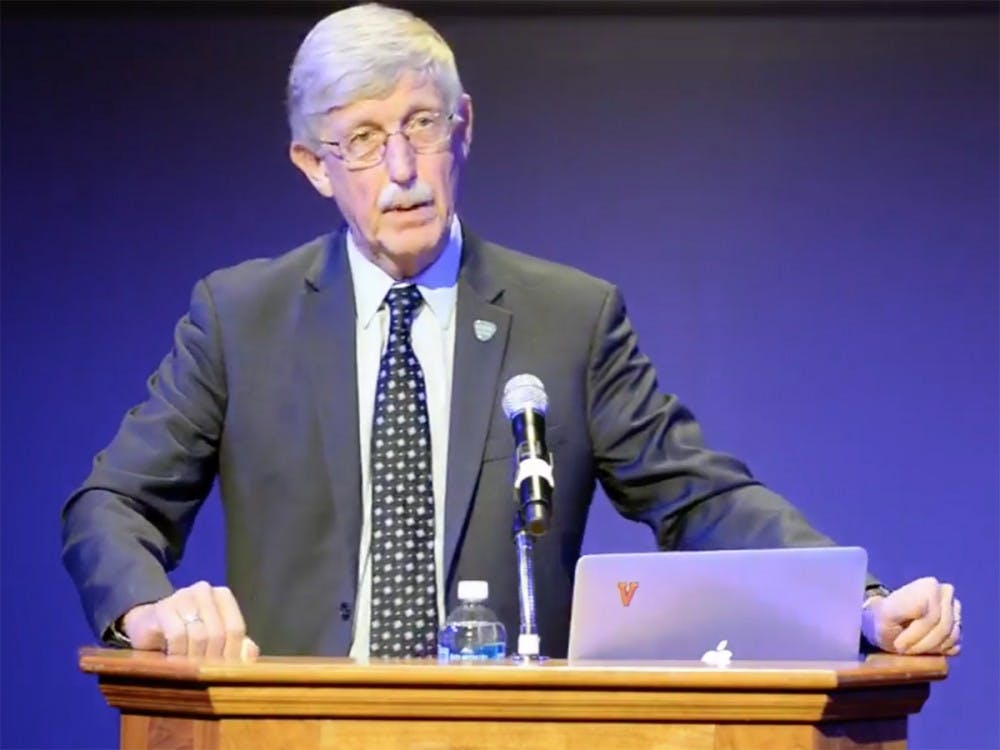Returning to his alma mater, National Institutes of Health Director Francis Collins spoke at Old Cabell Hall Tuesday.
In his eight years leading the NIH, Collins has notably worked on many genomic research initiatives. He previously served as director of the National Human Genome Research Institute, was awarded the Presidential Medal of Freedom by former President George W. Bush and is a National Medal of Science laureate.
The Engineering School sponsored the talk, which was organized to introduce diverse perspectives to the University community and celebrate inclusivity in academia. Collins’s appearance was part of the “Excellence Through Diversity Distinguished Learning Series.” More than 400 people attended the lecture.
“I think he is perfectly poised to inspire a generation of leaders — specifically from the University of Virginia — in the fields of public health, research and medicine,” Thomas Pilnik, the program coordinator for the Engineering School’s Office of Diversity and Engagement, said in an email before the event.
John F. Gates, associate dean for diversity and inclusion at the Engineering School, introduced Gospel singer Candace Potts and accompanist Marcus Smith, who performed songs such as “Come Sunday” and “Steal away to Jesus” before the talk.
Collins was then introduced by Richard P. Shannon, the University’s executive vice president for health affairs. In his remarks, Shannon highlighted Collins’s work on the Human Genome project and his tenure as the NIH director.
“The University of Virginia could not be more proud to welcome back truly one of its most distinguished alumni,” Shannon said. “An extraordinary physician and scientist. And a great humanitarian.”
In his speech, Collins discussed a genomics-based analysis of human relatedness.
“Let no one think that they will find evidence from genomic science to support a prejudiced view of humanity,” Collins said. “You will not find it there.”
Collins then encouraged the audience to ensure that resources and institutional support systems are accessible to all and discussed diversity in research participants.
“If we want to understand medicine and medical interventions, be they for prevention or treatment, we need to come up with answers that would apply to everybody,” Collins said.
He then turned to the present.
“We have a historic opportunity to try to understand how we are all the same but how we are all different,” Collins said. “It behooves us in our headlong rush to learn about things to expand our knowledge, to take some time to focus on this issue.”
The next guest in the learning series is Shankar Vedantam, host of NPR’s “The Hidden Brain” and human behavior columnist. He will speak at Old Cabell Hall on Oct. 26. Vedantam serves as the social science correspondent for NPR and has been honored by the American Public Health Association and Asian American Journalist Association, among other organizations.







